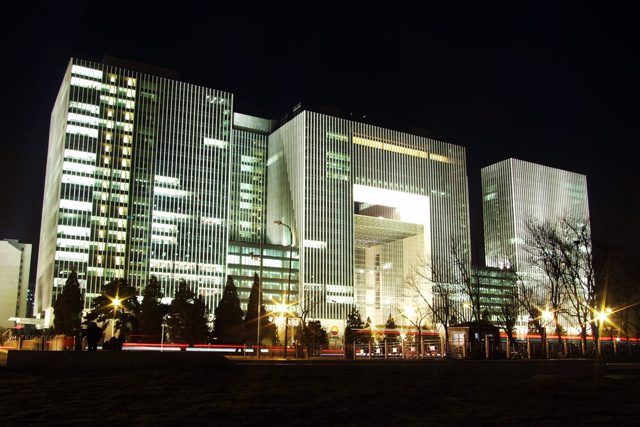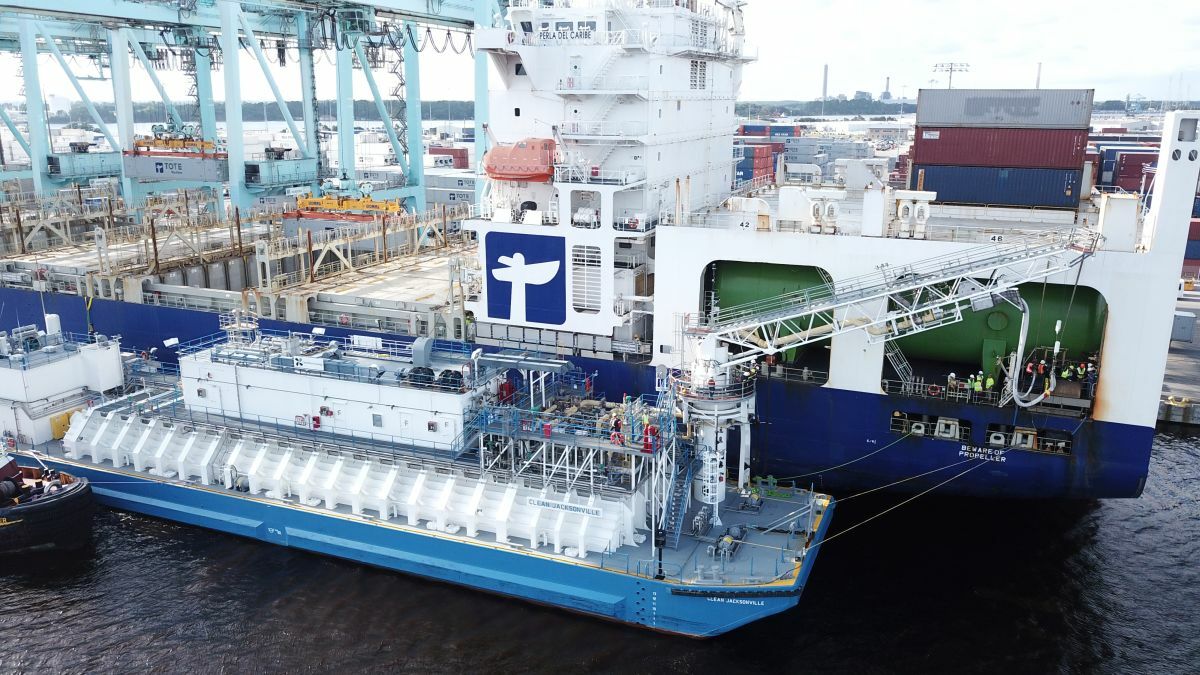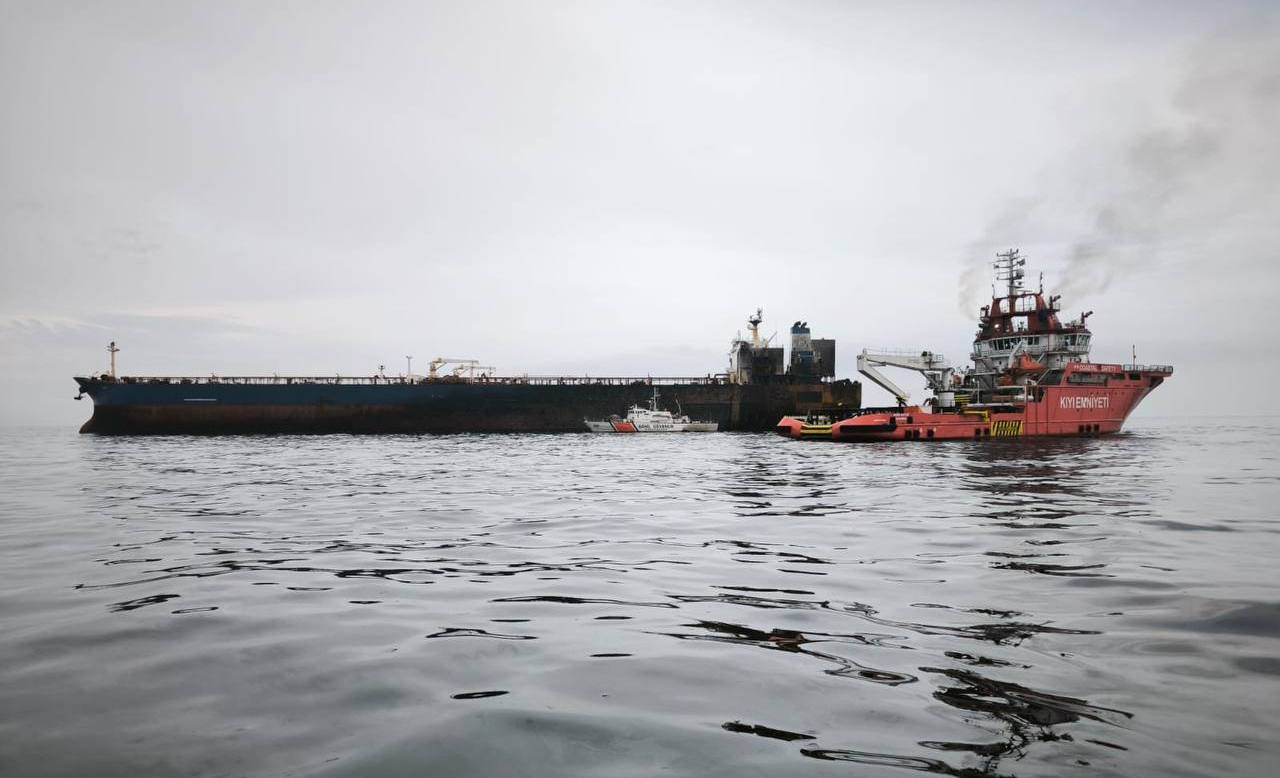The headquarters of China National Petroleum Corporation and PetroChina, image via Charlie Fong/wikipedia
 By Charlie Zhu, David Lague and Fergus Jensen
By Charlie Zhu, David Lague and Fergus Jensen
LIMAU, Indonesia, Dec 19 (Reuters) – In a muddy clearing in southern Sumatra, a portable diesel power plant hammers away alongside a wellhead, struggling to extract crude from a depleted reservoir that lies below farmland and rubber plantations.
It was much easier to extract cash from a state-owned Chinese oil giant.
A subsidiary of China National Petroleum Corporation (CNPC), PetroChina Daqing Oilfield, paid $85 million to pump from three blocks in the aging Limau field under a 2013 contract with Indonesia’s state-owned oil company, Pertamina, according to senior Chinese oil industry officials with knowledge of the transaction.
Today, the three Limau blocks squeeze out less than three percent of the oil pumped when output peaked in the 1960s. When PetroChina Daqing announced the deal, it didn’t disclose the seller, the price or any other financial details.
“We all know it is a ridiculous investment, but I have no idea where the money has actually ended up,” says a senior Chinese oil industry official who has seen budget figures for the Limau wells.
The management at CNPC is now investigating the deal as part of a sweeping crackdown on official graft by Chinese President Xi Jinping that has destroyed a powerful political rival who once ran the oil giant – Zhou Yongkang. The anti-corruption campaign is cutting a swathe through the senior management ranks at CNPC, with at least a dozen former top managers under arrest.
There is vast scope for corruption inside the CNPC empire, which includes its huge listed subsidiary PetroChina Company Ltd and hundreds of other units, say company officials familiar with the investigation. The group is one of the world’s biggest corporations, last year reporting revenues of $432 billion. Current and former senior company officials say it is difficult to keep track of all the businesses and deals underway.
`THIS IS CRAZY’
Indonesia’s anti-graft watchdog told Reuters last month that it plans to probe the country’s oil sector. Satoto Agustono, director of development at Pertamina EP, a unit of Pertamina, said he had no knowledge of the price of the Limau deal but said oil companies sometimes paid top dollar for risky investments.
“The oil and gas business is really crazy,” he said. “We do not know why they want to buy at high prices when production is low. But, some people, they buy it. This is crazy.”
Chinese oil industry officials say they have identified two other suspect deals in Indonesia in which the CNPC group paid a combined $350 million to buy assets from little-known private companies. “Basically, they are worthless,” says the same oil industry official who has seen the budgeting figures for the Limau deal. “It has caused heavy losses for the state.”
CNPC chairman Zhou Jiping told an internal meeting in August that the company would “actively explore” new ways of conducting investigations in its overseas operations as part of its crackdown on corruption, the company said in a statement on its website. A CNPC group spokesman in Beijing declined to answer questions from Reuters about the suspect deals.
The story of the Limau transaction provides a window into the mechanics of what Chinese oil industry officials say is one suspect deal.
Interviews with CNPC officials, searches of company filings and documents related to the agreement reviewed by Reuters show PetroChina Daqing paid for control of a shell company registered in a tax haven, the British Virgin Islands (BVI). This transaction allowed PetroChina Daqing to take over the operation of the three Limau blocks.
Only a trickle of oil has been pumped since the deal was announced in March 2013, according to Chinese and Indonesian oil industry officials with knowledge of the field.
TARGETTING ZHOU
The probes into the Indonesian deals are part of a much wider corruption investigation in China that has sparked the biggest political upheaval since the 1989 Tiananmen protests.
Zhou Yongkang, born in 1942, was a member of China’s elite Politburo Standing Committee until his retirement in 2012. A former head of China’s feared internal security apparatus, he is now almost certain to become the most senior leader to be prosecuted since the 1981 trial of the Gang of Four, driving figures behind the Cultural Revolution.
On December 6, the official Xinhua News Agency said Zhou had been expelled from the ruling Communist Party. The statement accused him of corruption and leaking state secrets. Zhou’s case has been handed to judicial authorities, it said – terminology that usually means criminal charges will follow. It is not known if he has a lawyer.
Zhou built an extensive power base at CNPC as he rose to the top of the oil giant in the 1990s. At least 11 other former top CNPC group officials are under arrest. Two – former CNPC vice president Wang Yongchun and the former head of the group’s Indonesian operations, Wei Zhigang – were involved in assessing the Limau investment, according to Chinese oil industry officials. Wang Yongchun was also president of PetroChina Daqing Oilfield.
“The investigations into Wang and Wei are linked to but not limited to the Limau acquisition,” said one of the Chinese oil industry officials.
Two months before he was arrested in August last year, Wang said the company was keen to expand in Indonesia, according to the company’s website. Wang was quoted hailing the Limau deal as an example of deepening cooperation.
In a November 28 report, the Communist Party mouthpiece, the People’s Daily newspaper, confirmed that graft busters were probing Zhou’s network in the petroleum industry. It was the first official acknowledgement the CNPC arrests were tied to him.
CNPC has disowned Zhou. “We will never provide shelter for corrupt elements,” the company pledged in a statement coinciding with the news of his arrest.
Under former CNPC head Jiang Jiemin, who was arrested last year, the group launched a headlong spending splurge, heeding a political command to secure more offshore oil reserves. In the five years to 2013, the company spent $25 billion on overseas assets and $241 billion on capital expenditure.
Investigators are now scrutinizing the group’s domestic and offshore spending on oilfields, oil service contracts and equipment supply deals.
Jiang and Wang Yongchun have been expelled from the party and are under investigation for “taking huge bribes,” according to the Central Commission for Discipline Inspection (CCDI). Calls to the Beijing numbers for the CCDI spokesman on the agency’s website were not answered.
As is routine in Chinese corruption cases, Jiang, Wang and Wei couldn’t be reached for comment nor could their lawyers be identified.
SHELL COMPANIES
Indonesia has been a key target for the CNPC group’s expansion plans. Once self sufficient in oil, output in the Southeast Asian nation has declined since its 1995 peak. Jakarta has been anxious to attract foreign investment to arrest falling production.
Some of CNPC’s early investments in Indonesia, made when oil prices were lower, have paid off. Its listed unit, PetroChina, bought the Indonesian assets of U.S. oil producer Devon Energy Corp in 2002. CNPC was the country’s seventh-ranked producer in 2011 with 3,500 employees and an annual output of about 40 million barrels.
The Limau deal was a departure from PetroChina Daqing Oilfield’s normal business model. The oil services company hailed the 2013 agreement as its first “technology-for-resources” deal, having traditionally relied on fees for its income. In this deal, it would trade its expertise in extracting oil from mature fields in return for a share of any increased output, it said in a statement.
In a subsequent statement in June last year, the company said it had completed an “equity acquisition related to the Limau project,” without disclosing the seller or the price.
Interviews with Chinese oil industry officials and documents related to the transaction show PetroChina Daqing actually bought Vision Horizon Holdings Ltd., a company registered in the British Virgin Islands. A company search shows that Vision Horizon was registered in May 2009. BVI companies are not required to disclose directors and shareholders.
Through other shell companies registered in the tax haven, Vision Horizon is linked to BVI-registered Indospec Energy Limau, the company that holds a joint operating contract for the three Limau blocks. In an interview with Reuters in his Jakarta office, the chief executive of Indospec Energy Limau, Indra Wijaya, confirmed that the company had won the contract from Pertamina through a tender.
A draft of the 91-page contract reviewed by Reuters shows that Indospec Energy Limau is scheduled to invest another $50 million in the first three years of a 20-year operating agreement.
Wijaya, who said he had earlier worked for Pertamina for more than 20 years, confirmed that Vision Horizon was involved in the Limau deal but declined to provide details. Wijaya also declined to discuss PetroChina’s $85 million payment. “This is about our business,” he said. “I am not going to give any answer.”
UNLIKELY TO MEET TARGET
Like many of Indonesia’s mature oilfields, Limau has been in decline since it peaked in the 1960s. The field covers more than 200 square kilometers of forest and farmland, including patches of rubber and palm oil plantation, in South Sumatra Province.
In a 2013 technical paper, Wijaya and two Pertamina experts advocated using advanced recovery methods to boost ouput. They reported that production from the three blocks had peaked at 46,000 barrels a day in 1960. A report by Wood Mackenzie, an energy consultancy, showed that by the 1990s, water injection and other recovery methods were needed to keep the field pumping.
A company that earlier operated Limau, Hong Kong-listed South Sea Petroleum Holdings Ltd, said in a stock exchange filing that output for the entire field in 2007 was about 7,000 barrels a day. The combined output from the three blocks is now about 1,200 barrels a day, according to Pertamina’s Agustono.
In its 2013 statement announcing the deal, PetroChina Daqing said it aimed to boost production of the three Limau blocks to about 7,300 barrels a day. Upstream industry experts familiar with the Limau field say it is highly unlikely that PetroChina will ever meet this target.
(Additional reporting by Wilda Asmarini in Jakarta and Benjamin Kang Lim in Beijing. Editing by Peter Hirschberg.)
(c) 2014 Thomson Reuters, All Rights Reserved

 Join The Club
Join The Club











